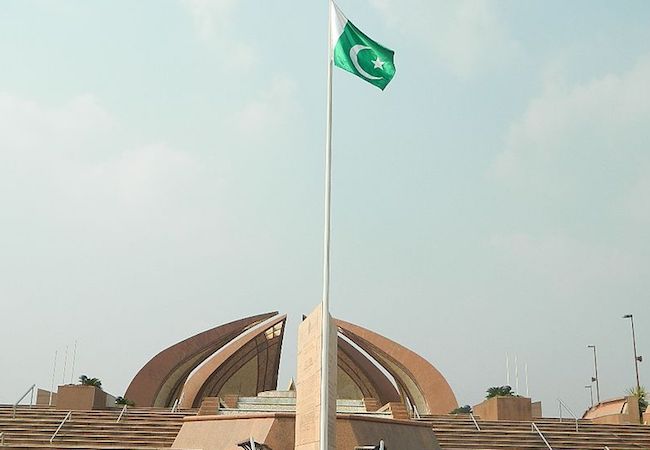
By Dr. Zahid Khan
Basically, the key objective of FATF (Financial Action Task Force) is to set the standards and actively encourage the effective implementation of legal, regulatory and operational measures for combating money laundering, terror financing and threats to the integral financial system. It was established in July 1989 by G-7 summit, and holds 37 member jurisdictions in all parts of the globe.
According to the FATF jurisdictions under increased monitoring Feb 2021, Pakistan has now largely addressed 24 out of 27 action items. As all action plan deadlines have expired, the FATF highly urged Pakistan to swiftly complete its full action plan before June 2021.
On 25th June 2021, FATF announced that Pakistan will continue to remain in the grey list, till it addresses the single remaining item. Literally, a politicized decision announced by FATF president Dr. Marcus Pleyer in a virtual press conference that “Pakistan has made decisive progress, and it has largely addressed 26 out of 27 items on the action plan which was decided in June 2018, but the item on financial terrorism still needed to be addressed. Noticeably, IMF, United Nation and Egmot Group of Financial Intelligence Units have taken part as observers of the FATF plenary.
Apart from, six (1+5) more action items offered to Pakistan just after the Asia Pacific Group (APG) assessment. In the virtual conference, Pleyer responded to a question related to the delisting Pakistan from grey list that it will not possible before both action plans are completed successfully. In addition, FATF is highly stressing on following three remaining items include: (a) demonstrating that TF investigations and prosecutions target persons and entities acting on behalf or at the direction of the designated persons or entities; (b) demonstrating that TF prosecutions result in effective, proportionate and dissuasive sanctions; and (c) demonstrating effective implementation of targeted financial sanctions against all 1267 and 1373 designated terrorists, specifically those acting for or on their behalf.
Bluntly speaking, FATF has become a tool for core countries to coerce developing countries or third world generation like Pakistan, Ghana, Morocco, Mauritius, Libya, Yemen, Syria, Cambodia etc. In case of Pakistan, the consequences being in FATF-grey list will definitely call for economic sanctions, and will also create snag for international banking system, financial transaction, investment and obtaining loans from IMF, World Bank, Asian Development Bank (ADB) etc.
Immanuel M. Wallerstein, an American sociologist analyzed that the world system is like a unit in which, the core countries (US and European countries) have a strong central government with enough tax to support it. They are economically diversified, industrialized and relatively of outside control whilst, periphery countries are those in Latin America, Asia and Africa etc, and tend to have a relatively weak government. There’s a high percentage of poverty and illiteracy, as well as small upper class which controls most of the economy and this create a huge in-equality in the population. These countries are greatly influenced by core countries and trans-national corporations which can harm the future economic potentials of periphery countries.
Likewise, semi-periphery countries are structured in the middle ground between core and periphery. They are often not dominant in international trade but they have a relatively diversified and developed economy. He added more that the peripheries have weak governance system, low rates of savings, lack of infrastructure, lack of technical expertise and also export resources to the core countries. These core countries are exploiting men and materials of developing countries.
Globally, Pakistan status is considered as a periphery state or third world country into the global categories, and highly exploited by core countries (especially, USA) for a long time. Due to their strategic interests, Pakistan has/had always stuck into the war strategies, security issues, conventional adversary, territorial disputes, weak economic structure, IMF debt trap and weak governance system
Ironically, CIA funded and facilitated weapons and ammunitions to the Afghan Taliban against Soviet Union, and U.S. declared them as freedom fighters or “Mujahiddin”. The core intension of these Taliban was to establish Islamic based regime in Afghanistan. Later on, the same Taliban were declared as terrorists because of U.S. national interest in Afghanistan. Likewise, Pakistan lost 80,000 lives in the so-called U.S. “war on terror” just after the 9/11 attack till to date.The country’s economy reached to the zilch point due to the geo-strategic and geo-political compulsion.
Periphery states strongly believe in the core objective of FATF but expected more for equal treatment. Rationally, FATF may ask copious substantial questions related to the terror financing that why USA lease-out Pakistani airbases? Secondly, why CIA funded and weaponize Afghan Taliban? Thirdly, Pakistan has already shown evidences against Indian espionage activities and terror financing in Pakistan, as well as Afghanistan. In-fact, FATF is more interested in coercing weak states like Pakistan rather than exposing terror financing and money laundering of core countries like USA, India etc. However, the FATF discriminative practices will create more in-equality and trust deficit between core and peripheries states.
Dr. Zahid Khan Marwat is a Postdoctoral Fellow at department of Sociology Nanjing (Hohai) University, PR China.




